China’s Zhurong rover used ground-penetrating radar to find signs of beaches beneath Mars’ surface, adding evidence to the idea the planet hosted an ancient ocean.
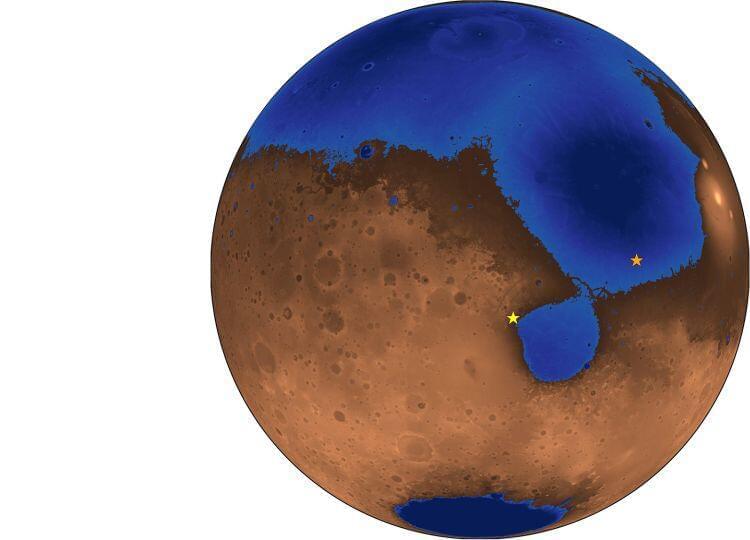

Ultra–high-power particle pulses could boost x-ray science and laboratory astrophysics.
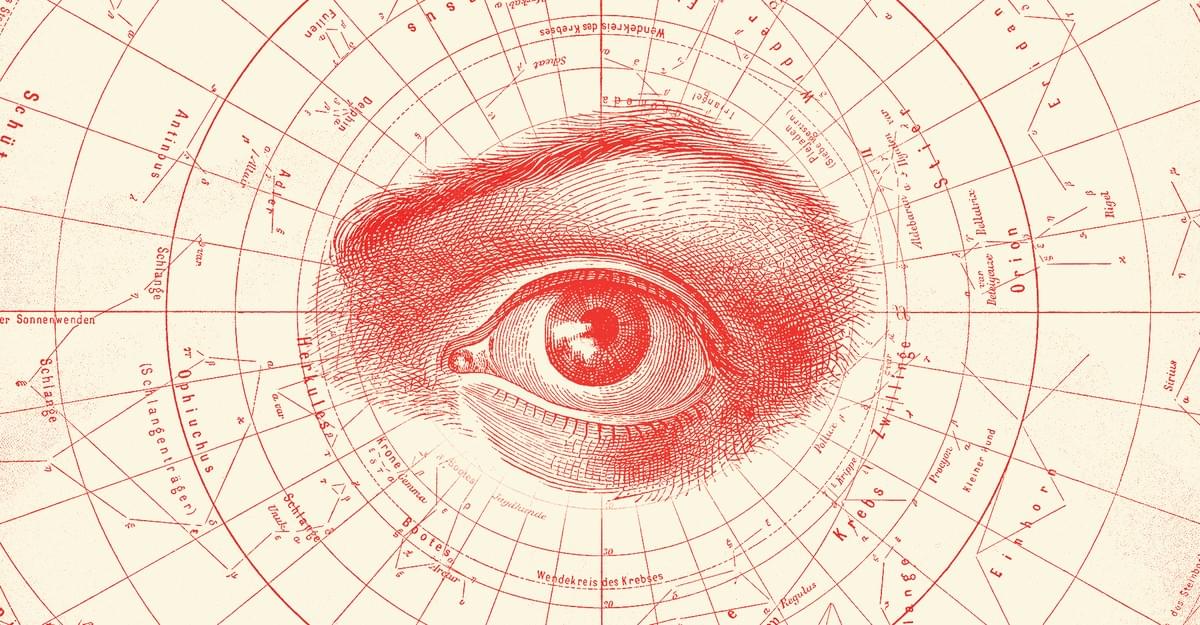
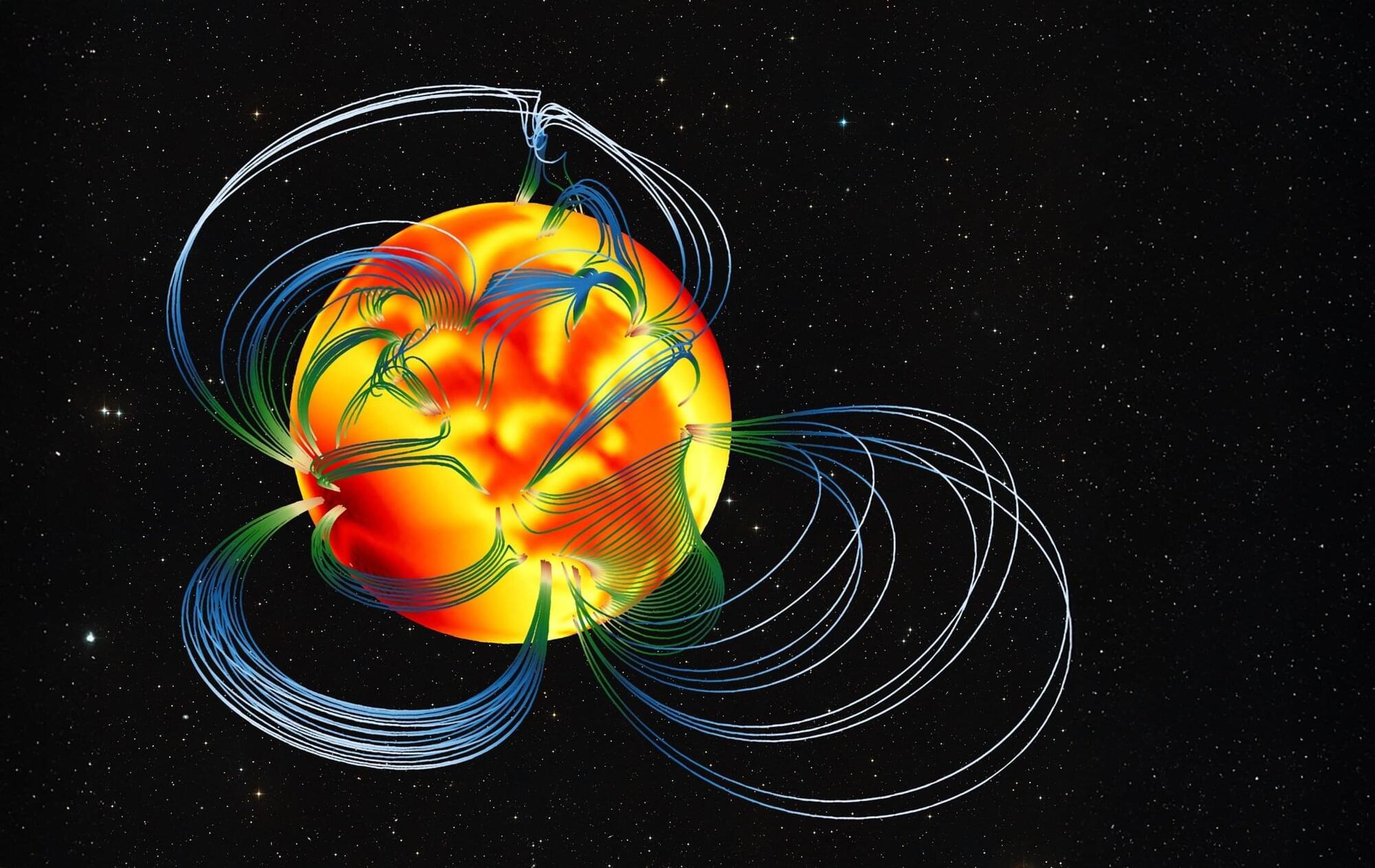
A breakthrough simulation reveals how magnetars form and evolve, solving a key mystery about their magnetic origins.
Magnetars are a rare type of neutron star.
A neutron star is the collapsed core of a large (between 10 and 29 solar masses) star. Neutron stars are the smallest and densest stars known to exist. Though neutron stars typically have a radius on the order of just 10 — 20 kilometers (6 — 12 miles), they can have masses of about 1.3 — 2.5 that of the Sun.

A team led by researchers at UNC-Chapel Hill has made an extraordinary discovery that is reshaping our understanding of bubbles and their movement. Imagine tiny air bubbles inside a liquid-filled container. When the container is shaken up and down, these bubbles exhibit an unexpected, rhythmic “galloping” motion—bouncing like playful horses and moving horizontally, despite the vertical shaking. This counterintuitive phenomenon, revealed in a new study, has significant technological implications, from improving surface cleaning and heat transfer in microchips to advancing space applications.
These galloping bubbles are already drawing significant attention. Their impact on fluid dynamics was recently recognized with an award for their video entry at the latest Gallery of Fluid Motion, organized by the American Physical Society.
“Our research not only answers a fundamental scientific question but also inspires curiosity and exploration of the fascinating, unseen world of fluid motion,” said Pedro Sáenz, principal investigator and professor of applied mathematics at UNC-Chapel Hill. “After all, the smallest things can sometimes lead to the biggest changes.”
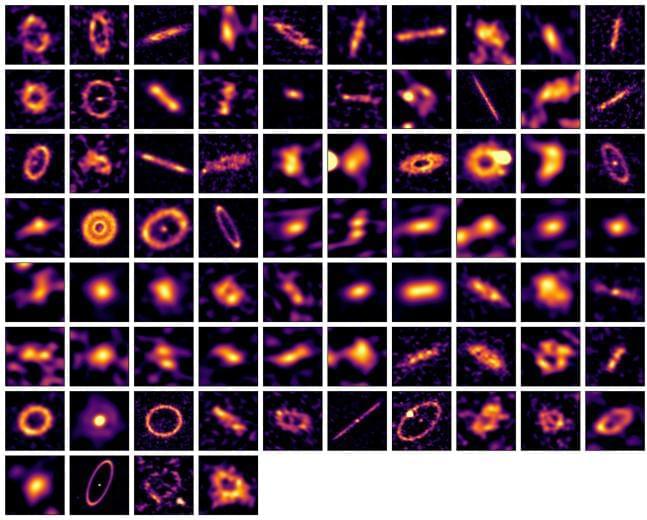
For the first time, astronomers have imaged dozens of belts around nearby stars where comets and tiny pebbles within them are orbiting.
This result reveals regions around 74 stars spanning a wide range of ages—from those recently formed to others billions of years old—showing how comets play a role in the formation of stars and planetary systems. The study is published in the journal Astronomy & Astrophysics.
To find evidence for comets outside our solar system (called “exocomets”), astronomers turned to two facilities that detect particular bands of radio waves. Because of the size of the dust and rocks in these belts, this type of light is particularly good at finding and imaging these structures.
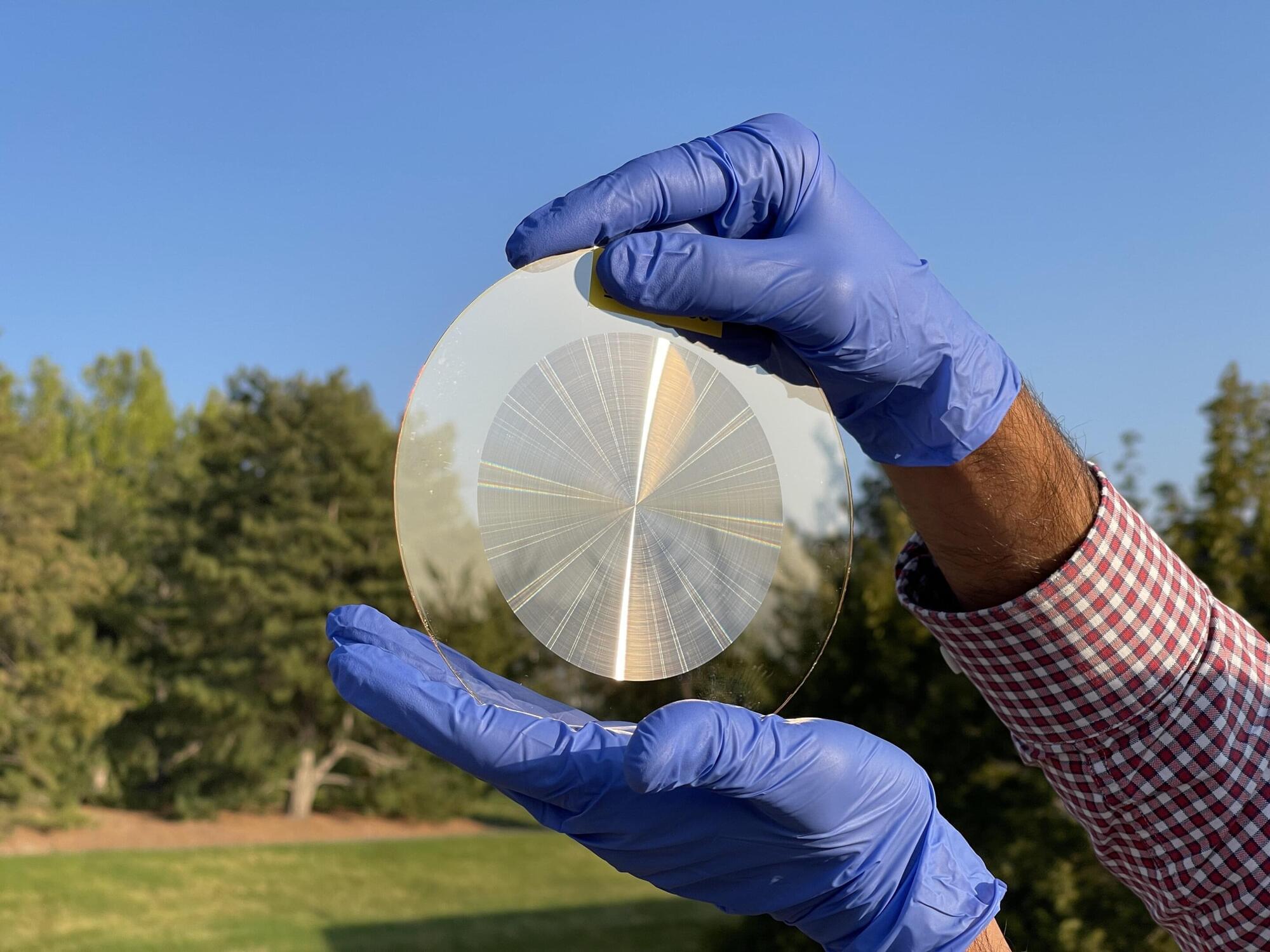
For centuries, lenses have worked the same way: curved glass or plastic bending light to bring images into focus. But traditional lenses have a major drawback—the more powerful they need to be, the bulkier and heavier they become.
Scientists have long searched for a way to reduce the weight of lenses without sacrificing functionality. And while some slimmer alternatives exist, they tend to be limited in their capacity and are generally challenging and expensive to make.
New research from University of Utah engineering professor Rajesh Menon and colleagues at the Price College of Engineering offers a promising solution applicable to telescopes and astrophotography: a large aperture flat lens that focuses light as effectively as traditional curved lenses while preserving accurate color.
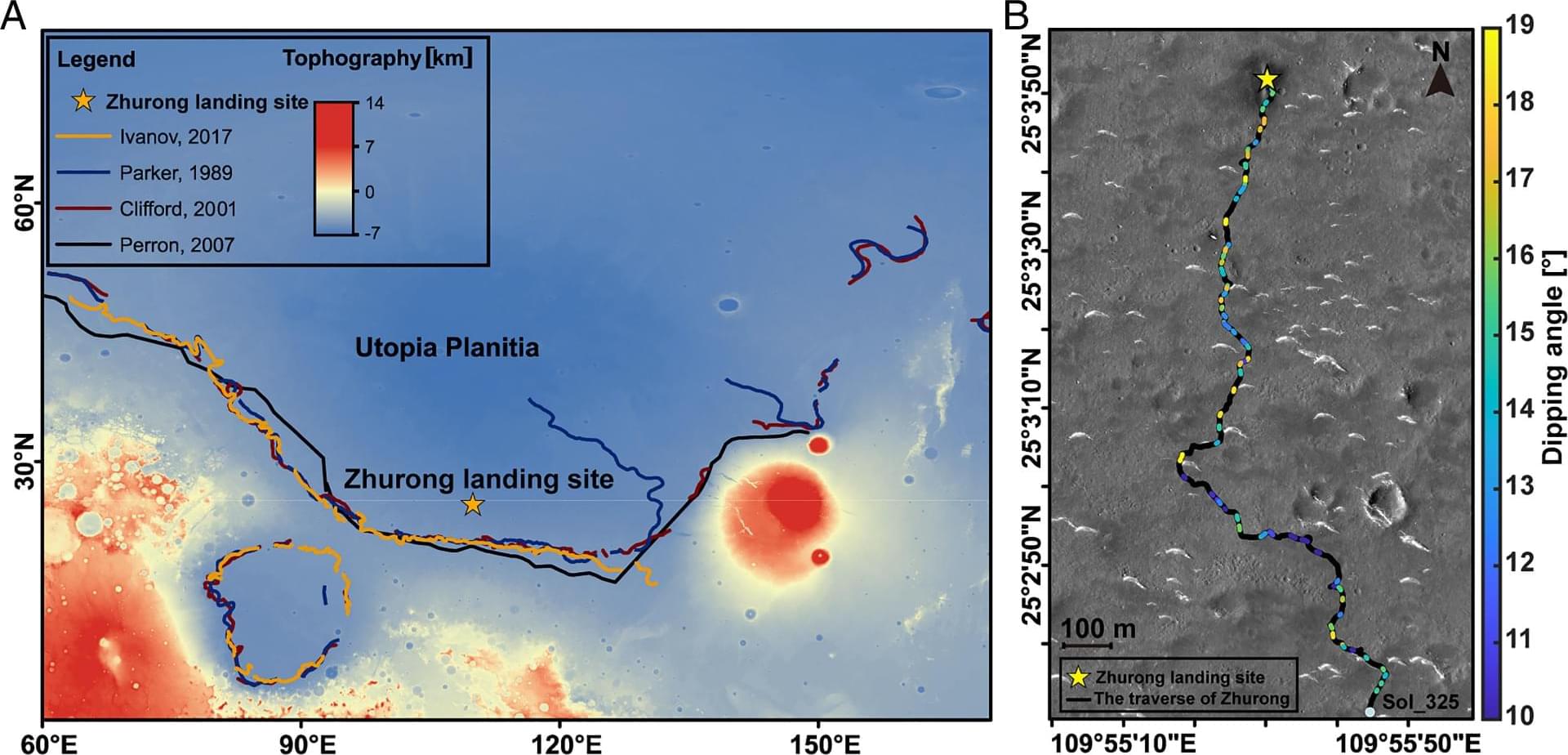
The northern lowlands of early Mars could have contained a significant quantity of liquid water. However, the ocean hypothesis remains controversial due to the lack of conclusive evidence from the Martian subsurface. We use data from the Zhurong Rover Penetrating Radar on the southern Utopia Planitia to identify subsurface dipping reflectors indicative of an ancient prograding shoreline. The reflectors dip unidirectionally with inclinations in the range 6° to 20° and are imaged to a thickness of 10 to 35 m along an uninterrupted 1.3 km northward shoreline-perpendicular traverse. The consistent dip inclinations, absence of dissection by fluvial channels along the extended traverse, and low permittivity of the sediments are consistent with terrestrial coastal deposits—and discount fluvial, aeolian, or magmatic origins favored elsewhere on Mars.
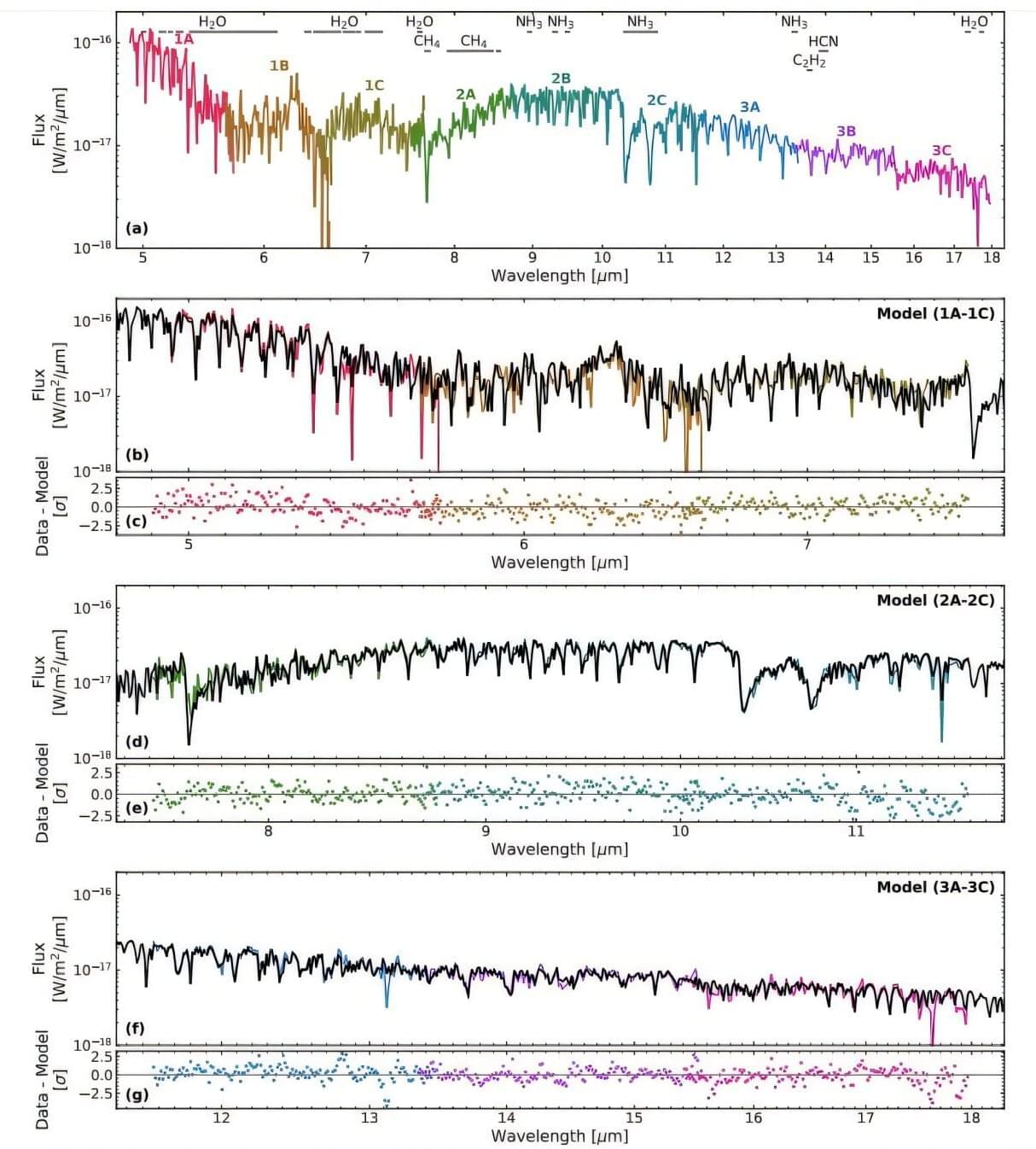
Using the James Webb Space Telescope (JWST), an international team of astronomers has explored the atmosphere of a nearby brown dwarf binary designated WISE J045853.90+643451.9. As a result, they detected hydrogen cyanide and acetylene in the atmosphere of this binary, marking the first time these two species have been identified in the atmosphere of a brown dwarf. The finding was reported Feb. 19 on the arXiv pre-print server.
Brown dwarfs are intermediate objects between planets and stars. Astronomers generally agree that they are substellar objects occupying the mass range between 13 and 80 Jupiter masses. One subclass of brown dwarfs (with effective temperatures between 500 and 1,500 K) is known as T-dwarfs, and represents the coolest and least luminous substellar objects so far detected.
Located just 30.1 light years away, WISE J045853.90+643451.9 (or WISE-0458) is a binary composed of two T-dwarfs of spectral type T8.5 and T9, with effective temperatures of 600 and 500 K, respectively. The pair has a semi-major axis of approximately 5.0 AU.
“The Ouroboros Code” explores the intersection of science and spirituality through the lens of digital alchemy and self-simulation. Authored by Antonin Tuynman, the book presents a philosophical framework called “The Transcendental Metaphysics of Pancomputational Panpsychism” exploring how consciousness may be the fundamental ground of existence and the universe a self-modifying code. Tuynman investigates topics like the nature of intelligence, the limits of computation, and the possibility of artificial general intelligence. The book draws on concepts from physics, information theory, mathematics, and various spiritual traditions, aiming to bridge the gap between objective and subjective realities. It builds upon the author’s previous works and incorporates insights from various scientists and thinkers. Ultimately, the book seeks to understand how the universe, through a recursive process, generates and experiences itself. *Available as a Kindle eBook, paperback, and Audible audiobook: https://www.amazon.com/Ouroboros-Code?tag=lifeboatfound-20… #SelfSimulation #Pancomputationalism #DigitalPhysics #ComputationalPhysics